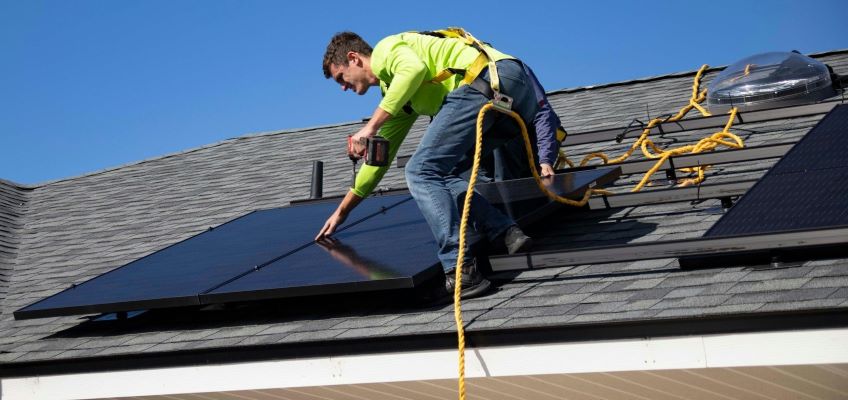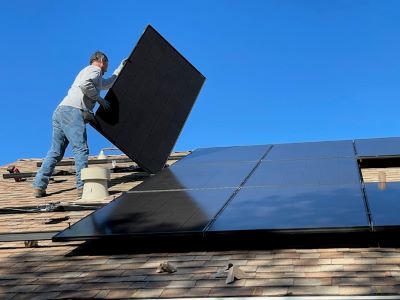
Plano, Texas, is renowned for its sunshine, making it an ideal location for harnessing solar energy. With an average of 234 sunny days yearly, it’s no surprise that many residents and businesses are turning to solar panels to generate clean, sustainable electricity. Solar Panels Plano Texas is proud to offer high-quality solar solutions to the area, empowering the community to take advantage of this abundant natural resource.
Advantages of Solar Panels for Homeowners in Plano
For homeowners in Plano, installing solar panels brings numerous benefits. One of the most significant advantages is the substantial reduction in electricity bills. Homeowners can offset or even eliminate their reliance on traditional utility providers by generating electricity from solar panels mounted on their rooftops. Additionally, solar panels increase property value and contribute to environmental conservation, thus providing long-term financial and ecological advantages.
Benefits of Solar Panels for Businesses in Plano, TX
Businesses in Plano can also reap substantial benefits from solar panel installation. Beyond the obvious cost savings on electricity bills, companies can take advantage of significant tax incentives and rebates for adopting renewable energy sources. Moreover, showcasing a commitment to sustainability through solar energy can enhance a company’s reputation and attract environmentally conscious customers. By investing in solar panels, businesses can achieve long-term energy independence and demonstrate corporate responsibility.
The Installation Process Starts With Solar Panels

The solar panel installation process in Plano, Texas, begins with assessing your property. A solar expert will evaluate your roof’s orientation, size, and shading to ensure that solar panels can generate maximum energy. Next, a customized solar plan is created considering your energy needs and budget.
Once the plan is approved, the installation can begin. Your solar provider will obtain the necessary permits and schedule the installation date. The installation team will first install the mounting system, which secures the panels to your roof. Then, the solar panels are placed and connected to the inverter, which converts DC electricity into usable AC electricity.
Following the physical installation, an inspection occurs to ensure compliance with local regulations. Finally, your solar system is connected to the grid. This step allows you to utilize solar energy and return excess power to the grid. With a reliable installation process, homeowners in Plano can enjoy the benefits of solar energy for years to come.
Financing Options for Solar Panels in Plano, Texas
Financing solar panels in Plano, Texas, can make the transition to solar energy more accessible. Numerous options allow homeowners and businesses to choose a plan that suits their financial situation. One popular option is a solar loan, which typically offers low interest rates and flexible terms. This allows you to buy the system upfront or over time.
Another financing method is a solar lease. With this option, you can enjoy the benefits of solar energy without the upfront costs. You pay a fixed monthly payment for using the solar system while the leasing company owns and maintains it. This approach can also lead to savings on your electricity bills.
Lastly, Power Purchase Agreements (PPAs) enable you to purchase the power generated by the solar panels at a set price. This agreement usually results in lower energy costs compared to traditional electricity rates. Exploring these financing options can help you harness solar energy in Plano while managing your expenses effectively.
Understanding Solar Rebates and Incentives in Plano
In Plano, Texas, solar panel rebates and incentives can significantly reduce the cost of going solar. Various programs are designed to encourage homeowners to invest in solar energy. One major incentive is the Federal Solar Investment Tax Credit (ITC), which allows you to deduct a percentage of your solar system’s cost from your federal taxes.
Additionally, some local utility companies offer rebates for solar panel installation. These rebates can vary, so checking with your utility provider is important. Programs like these help offset the initial financial burden of installing solar panels.
State incentives also exist, aiming to promote renewable energy adoption in Texas. The Texas State Energy Conservation Office provides information on various programs available to residents. Staying informed about these rebates and incentives can maximize your savings and make solar energy more affordable for homes and businesses in Plano.
Maintenance and Care for Your Solar Panels
Keeping your solar panels well-maintained is essential to ensure their optimal performance and longevity. In Plano, Texas, where the sun shines bright, regular maintenance can help maximize energy production and extend the lifespan of your solar investment.
1. Regular Cleaning: Dust, dirt, and pollen can accumulate on the surface of your solar panels, reducing their efficiency. Regularly cleaning them with a soft brush or sponge and mild detergent can help maintain their productivity.
2. Inspections: Schedule periodic inspections with a professional to check for signs of wear, loose connections, or potential issues. Addressing these early can prevent bigger problems down the line.
3. Trimming Nearby Trees: If trees are near your solar panels, trim branches to prevent shading. This will help maximize sunlight exposure.
By following these simple maintenance practices, you can ensure that your solar panels continue to generate clean and renewable energy for years.
Conclusion: Homeowners Are Embracing Solar Energy in Plano
Embracing solar energy in Plano, Texas, benefits homeowners and businesses tremendously. With ample sunlight throughout the year, installing solar panels allows you to harness this abundant renewable resource and helps reduce electricity bills and reliance on traditional energy sources.
By switching to solar energy, residents and businesses in Plano can significantly contribute to environmental conservation by reducing carbon emissions and dependence on non-renewable energy. Moreover, the transition to solar power becomes even more cost-effective with various incentives and tax credits available for solar installations.
Ultimately, embracing solar energy in Plano is not just a choice for sustainable living but a prudent financial investment that offers long-term benefits for the community and the planet. Visit Solar Panels in Texas to learn more.


